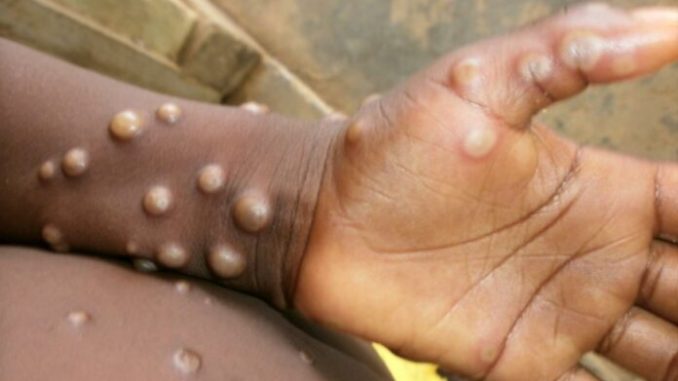
The agency which made the declaration on Wednesday said that the decision became imperative with 2,863 confirmed cases and 517 deaths already recorded across 13 African countries in 2024 alone.
The Africa Centres for Disease Control and Prevention (Africa CDC) has officially classified the Mpox outbreak as a Public Health Emergency of Continental Security (PHECS).
The agency which made the declaration on Wednesday said that the decision became imperative with 2,863 confirmed cases and 517 deaths already recorded across 13 African countries in 2024 alone.
The Africa CDC said that Mpox is a crisis demanding Africans’ collective action, and that it is activating resources, partnerships, and leading coordinated and strategic responses to protect the continent, hence, it called on global partners to join the African continent in the fight.
This marked the first time the agency has made such a declaration since its establishment in 2017.
This designation, under Article 3, Paragraph F of the Africa CDC Statutes, authorizes the organization to spearhead and coordinate responses to major health emergencies.
Africa CDC Director General, Dr. Jean Kaseya, who stressed the need for urgent action said, “Today, we declare this PHECS to rally our institutions, our collective resolve, and our resources for prompt and decisive action.
“This empowers us to build new partnerships, fortify our health systems, educate our communities, and deliver critical interventions where they are most needed. Currently, there is no need for travel restrictions.”
Dr. Kaseya noted that Mpox outbreaks have been reported in at least 13 African countries, including previously unaffected nations such as Burundi, Kenya, Rwanda, and Uganda.
In 2024, these countries confirmed 2,863 cases and 517 deaths, primarily in the Democratic Republic of the Congo (DRC).
According to the agency, the total number of suspected cases across the continent has surpassed 17,000, a notable increase from 7,146 cases in 2022 and 14,957 cases in 2023.
The emergency declaration followed extensive consultations, including a unanimous decision by the Africa CDC Emergency Consultative Group (ECG), chaired by Professor Salim Abdool Karim, head of CAPRISA, an AIDS research program based in Durban, South Africa.
Prof. Karim pointed out that limited surveillance and evidence suggest the situation may be more severe than currently understood.
“The number of cases has increased significantly compared to 2022 when WHO declared Mpox a public health emergency. We are facing a different scenario with far more cases, resulting in a greater burden of illness,” he said.
He also expressed concern about rising fatalities, particularly regarding the potential link between HIV and Mpox.
“We are worried that we may be seeing more deaths in Africa due to the association with HIV,” he added.
Cross-border transmission to previously unaffected countries was also a concern, leading the ECG to recommend the strategic distribution of the limited available vaccines.
The lack of diagnostic capabilities was identified as a critical issue requiring immediate attention, and the ECG encouraged the development of response plans, pledging to offer support and guidance.
In response to the Mpox outbreak, Africa CDC has established a 25-member Incident Management Team based at the epicenter of the epidemic to assist affected and at-risk countries.
The Africa CDC said it has also partnered with the European Commission’s Health Emergency Preparedness and Response Authority (HERA) and Bavarian Nordic to provide over 215,000 doses of the MVA-BN® vaccine—the only Mpox vaccine approved by both the FDA and EMA.
Leave a Reply